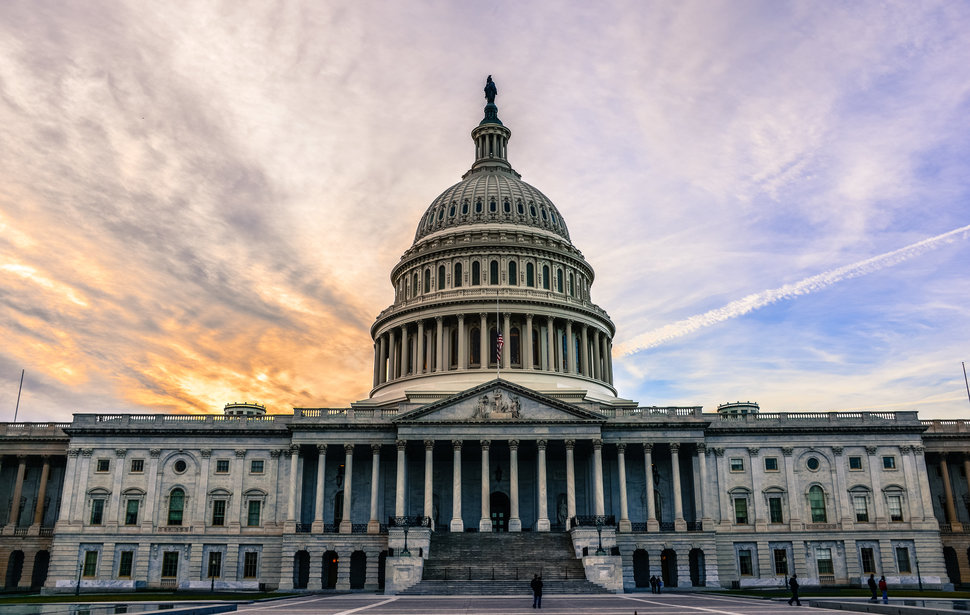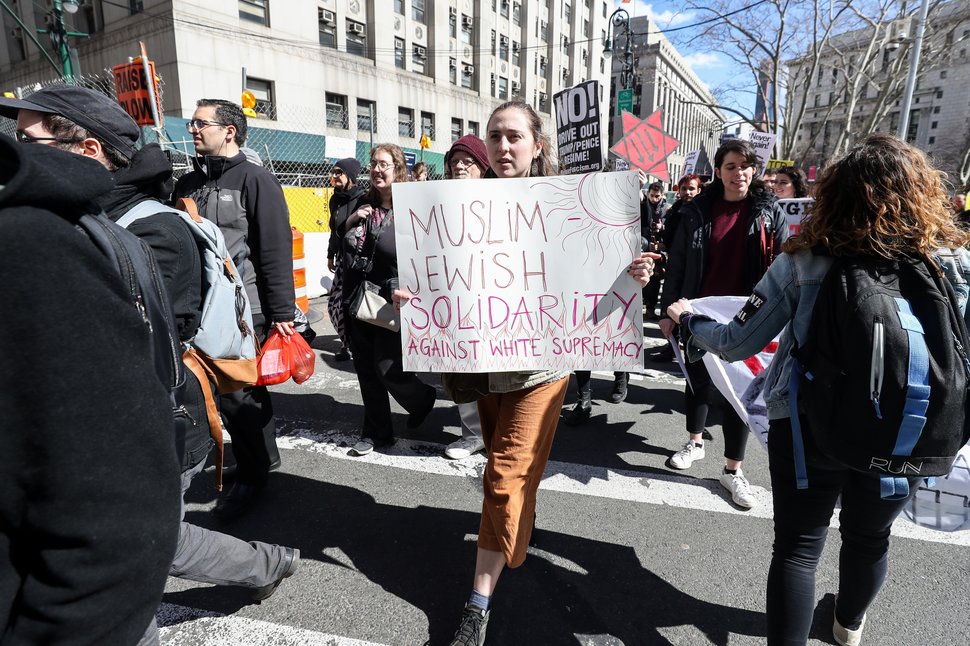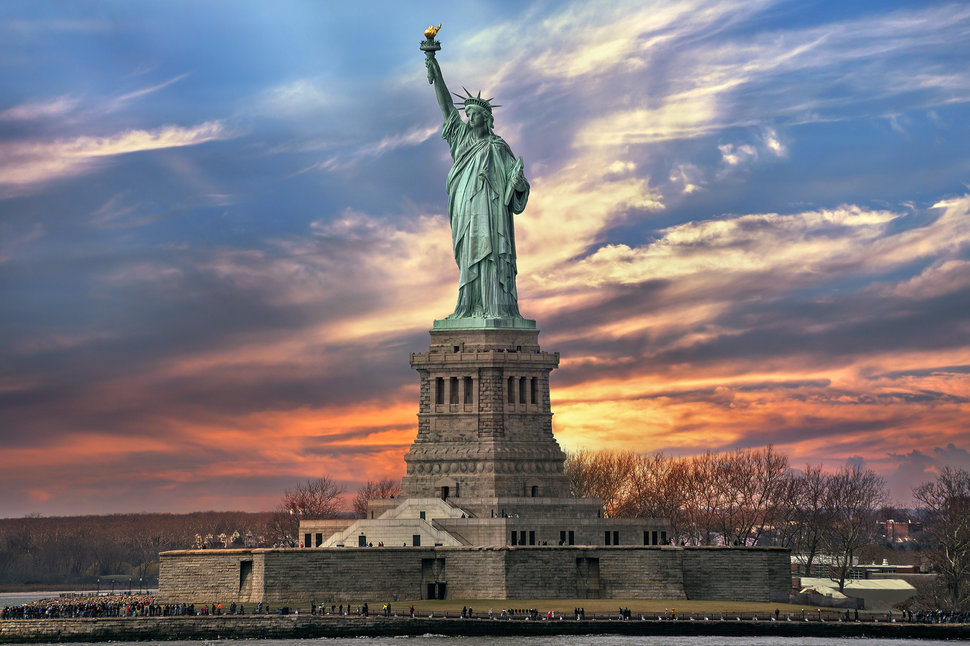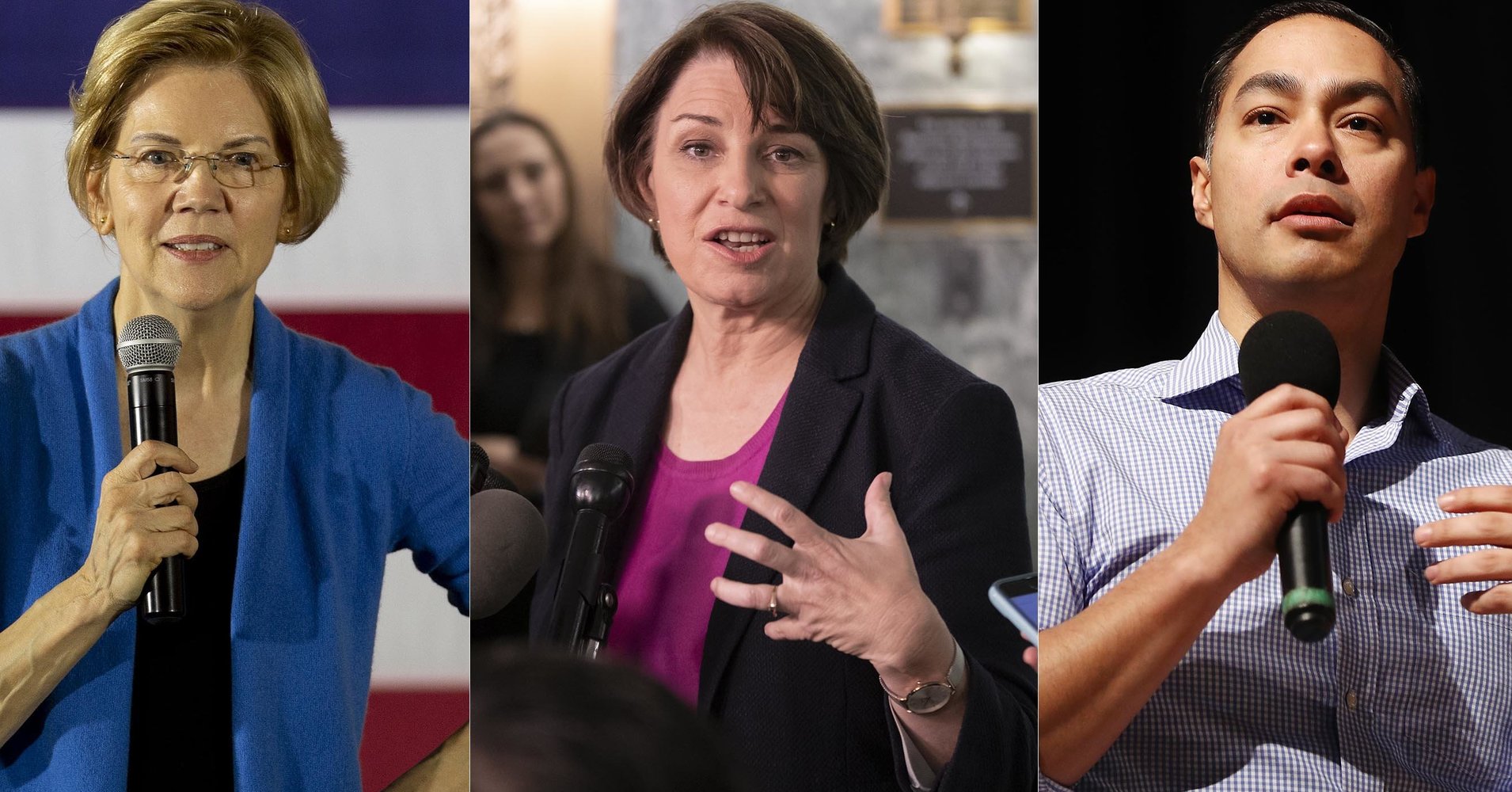[ad_1]
The Democratic field for the 2020 nomination is getting more crowded by the day. With at least 15 candidates trying to secure the nomination to go head-to-head with President Donald Trump in the general election, the presidential hopefuls are trying to stand out on the issues.
HuffPost asked readers to share what they would ask a presidential candidate, given the chance. In dozens of replies, readers touched on a variety of issues — from health care to LGBTQ rights to gun control to cannabis to student loan debt and more. We’ve compiled some representative responses from the most prevalent issues below.
Tune in to our Heartland Forum with Open Markets on March 30 ― where Pulitzer Prize-winning editor Art Cullen, and HuffPost’s Amanda Terkel and Zach Carter will speak with former Housing and Urban Development Secretary Julián Castro, former Rep. John Delaney (D-Md.), Sen. Amy Klobuchar (D-Minn.), Rep. Tim Ryan (D-Ohio) and Sen. Elizabeth Warren (D-Mass.).
Role Of The Government

What do you tell people who say they won’t vote in the general election or will vote for a minority party candidate if their candidate doesn’t win the nomination? — Eli Logan
Do you think it’s more important to try to pitch big (and possibly unrealistic) ideas for change or to find a middle ground? For example, “Medicare for all” versus an overhaul to the private insurance system. — Lisa Billings
As president, what would they personally be able to do? The president either vetoes or signs bills, yet most running points seem to be in the lawmaking process, which is Congress’ job. Other than requesting things be done by Congress, what could they do? Would we be seeing a lot of executive orders? — Derrek Labonte
Health Care

How does each candidate plan to make a single-payer system for health care a reality? — Beth Williamson
What do you see for Social Security and Medicare in the near future for those of us in our 70s? — Susan Thompson
The cost of medications in the U.S. is too high, but bills to obtain lower costs fail. What would you do to lower them? — June Secrist
How do you plan to help people like my father who can’t afford their insulin? — Allison Yakel
Student Loan Debt

What do you plan to do about the student loan debt crisis? Would you add any additional loan forgiveness programs? — Karyna Romo
With student loan debt currently amounting to $1.5 trillion in the U.S., it is the second-highest consumer debt category, behind mortgages, with the average college graduate accumulating $37,000 in debt for a four-year degree. How do you plan on reducing the cost of college and alleviating debt for the 44.2 million Americans currently burdened by student loans? Do you view student loan debt as a potential financial crisis? — Kerri Barron
Unlimited FDIC-insured student loans are causing massive inflation for college education, graduates with crippling student debt are deepening the wealth disparity and stunting the economy, and thousands have been deceived by the [Public Service Loan Forgiveness] program. If elected, how would you improve on or change our current system to aid indebted graduates and benefit future students? — Shannon
Some candidates want to push for the “refinancing of federal student loan debt,” but how is this not just privatization and how do you explain asking students to turn to the “kindness” of the private banking sector instead of keeping their federal debt that offers programs for income-based repayments and other hardship programs? Isn’t the lack of education about the ramifications of refinancing student loan debt just asking for another financial crisis but one that will cripple young people for life by not allowing it to be removed through bankruptcy? — Cortne Anway
We have a generation coming out of college with huge student loan debt. High cost of housing. And parents that haven’t saved for retirement. If this generation can’t afford to live, how can we grow economically and deal with $22 trillion in debt with an aging population? — Dan Bellock
Race Issues

How do you plan to go beyond securing “the black vote” or “the Hispanic vote” (etc.) and truly work toward changing our culture of whiteness and institutionalized racism? — Allison Yakel
Trump’s election emboldened white supremacists and bigots in general. As a result, racism and oppression have come to the forefront of our political discussions. And as a black woman, I have often felt that Bernie Sanders’ positions on race fall short. Why should I continue to support Sen. Sanders when Cory Booker and Elizabeth Warren are similarly economically progressive and support reparations for black people? I just want a candidate who understands that Democrats cannot continue taking the black vote for granted and that they must cater specifically to the black community’s interests. — Alex Boyd
For Elizabeth Warren: I like a lot of what you’re doing and what you’re proposing, but I remain concerned about how you have treated indigenous communities. What are you doing to repair your relationship with indigenous communities, including the Cherokee, and demonstrate that you will listen to them, take their concerns seriously and take steps to ensure their needs will be addressed? — Jessica Strong
What are their stances on reparations for Black American descendants of enslaved Africans? Why are they for or against? And what specifically is their policy plan to lift Black Americans out of the widening wealth gap? — Akeem Omar Ali
When will police murders of black people be recognized for what they are, and can the victims ever find justice? When will cops be held accountable for their bad behavior? More importantly, when will these killings stop? — Delphine Fairley
What promises can you make to eradicate nationalism and the terrorism committed at the hands of white supremacists? — Erica Taylor
Unity

As the next president of the United States, what would you do to help repair our alliances with our foreign allies who have been shunned by President Trump? — Grady
The 2016 presidential primary divided the party to an almost irreparable degree and cost us the general election. How do you plan to use positive campaigning to ensure that we are united going into 2020? — Meghan Cusick Olson
I would like to know what steps would you take to heal a broken and hurt country? How would you contain, reverse and not contribute to the divisiveness? — Diana Leygerman
The current administration’s term has been the most divisive and combative of my living memory. Since the last election cycle, Trump’s entire messaging has pitted “us against them” — our country against other nations and citizen vs. citizen. His voters vs. “the haters and losers.” Citizens vs. “illegals.” What are your specific plans and strategies for helping us all heal and become whole again? How can we unify as a country of proud inhabitants, despite our differences? And how can we gain back a reputation of respect and trust on a global stage? — Erica Taylor
Responses have been lightly edited for clarity and length.
[ad_2]
Source link

